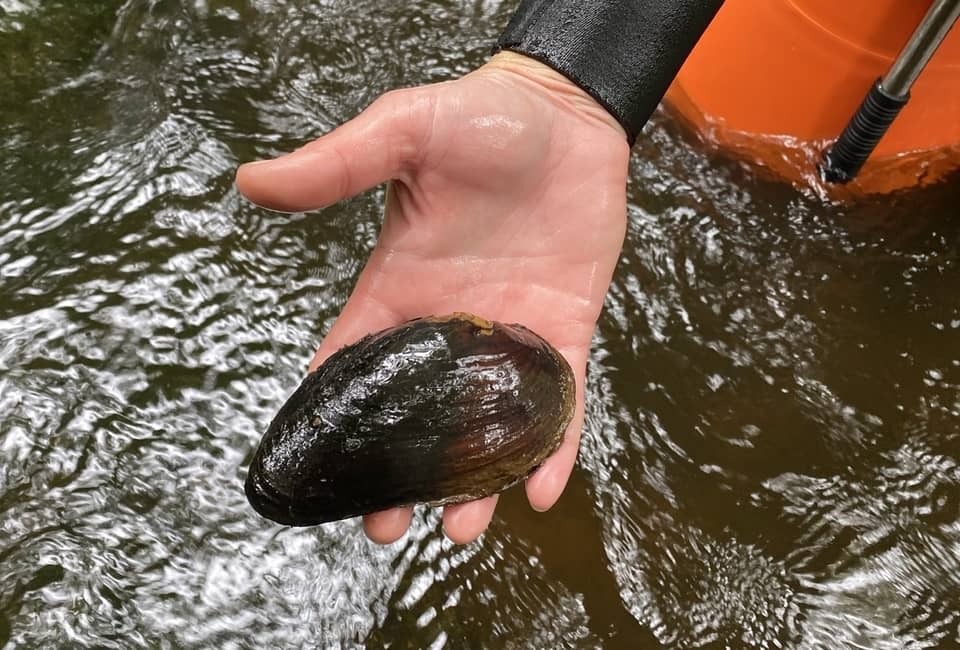Yorkshire Water partners with FBA to breed rare pearl mussels

8/3/2021
Yorkshire Water is working with the Freshwater Biological Association (FBA) and the North York Moors National Park Authority to help release young freshwater pearl mussels to the river Esk, in order to help to further enhance biodiversity and improve the overall health of the river.
Numbers of freshwater pearl mussels, also known as Margaritifera margaritifera, have seen a steep decline in the UK over the last 50 – 70 years and are considered endangered. Population declines have been linked to factors such as habitat loss, river engineering and declining salmonid stocks.
Mussels in the river Esk are over 80 years old and are the last remaining individuals in Yorkshire. Conservationists have collected the adult mussels and temporarily relocated them to a specialist facility to encourage them to release their young. The new born mussels will spend their first few years at the facility before being released back to the river when they are around 7 years old.
The freshwater pearl mussel is important to a functioning ecosystem as their presence significantly enhances biodiversity. They provide critical ecosystem services as the shells often provide or improve habitat for other organisms by providing physical structure, stabilising sediments, improving the food and oxygen availability and filtering and consuming suspended particles, thus improving water clarity. One adult freshwater pearl mussel can filter 50 litres of water per day!
Ben Aston, principal ecologist at Yorkshire Water, said: “We’re really pleased to be supporting the FBA and funding their pearl mussel project on the River Esk.
“Freshwater pearl mussels are incredible creatures, and their continued presence in British waters is really important. We are delighted to play our part in trying to safeguard at-threat species like the pearl mussel and help the wildlife of Yorkshire to thrive.”
Louise Lavictoire, mussel reintroductions research officer at the FBA said: “We’re really excited we can help the Esk population to avoid extinction. We’ve had some success already rearing juvenile mussels from the Esk and this much-needed funding support from Yorkshire Water will help us to build upon this and really help to kick-start the population again.”
Elizabeth Clements, head of natural environment with the North York Moors National Park Authority, said: “Hopefully the adult mussels will breed successfully at the FBA and their young will be returned to the river Esk in about 7 years. They may not be cute, but freshwater pearl mussels are a very important keystone species in our river; we continue to work together with land managers and farmers to get the conditions right for them, and this will have positive knock on benefits for a wide range of other wildlife such as otters, Atlantic salmon and trout, and birds like dippers and kingfishers.”
The efforts on the river Esk are part of a wider body of work by the FBA at the Freshwater Pearl Mussel Ark. The scheme has additional funding from Natural England, the North York Moors National Park Authority and the Environment Agency and aims to propagate juveniles from some of the most imperilled populations in England.
To find out more about Yorkshire Water’s biodiversity projects, go to https://www.yorkshirewater.com/environment/biodiversity/
